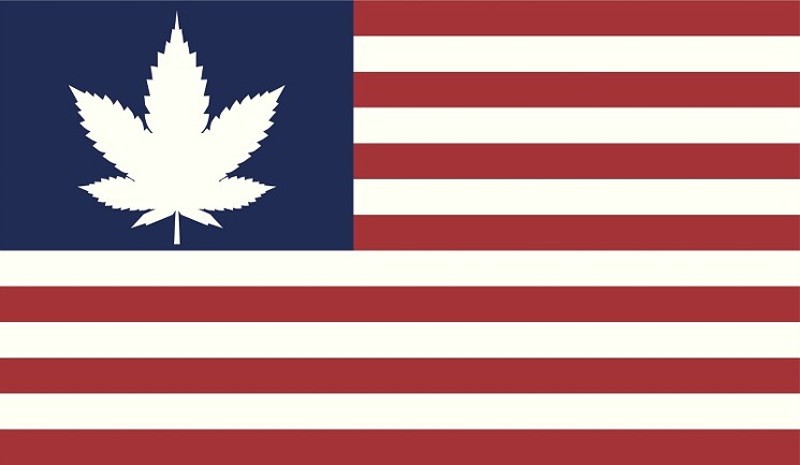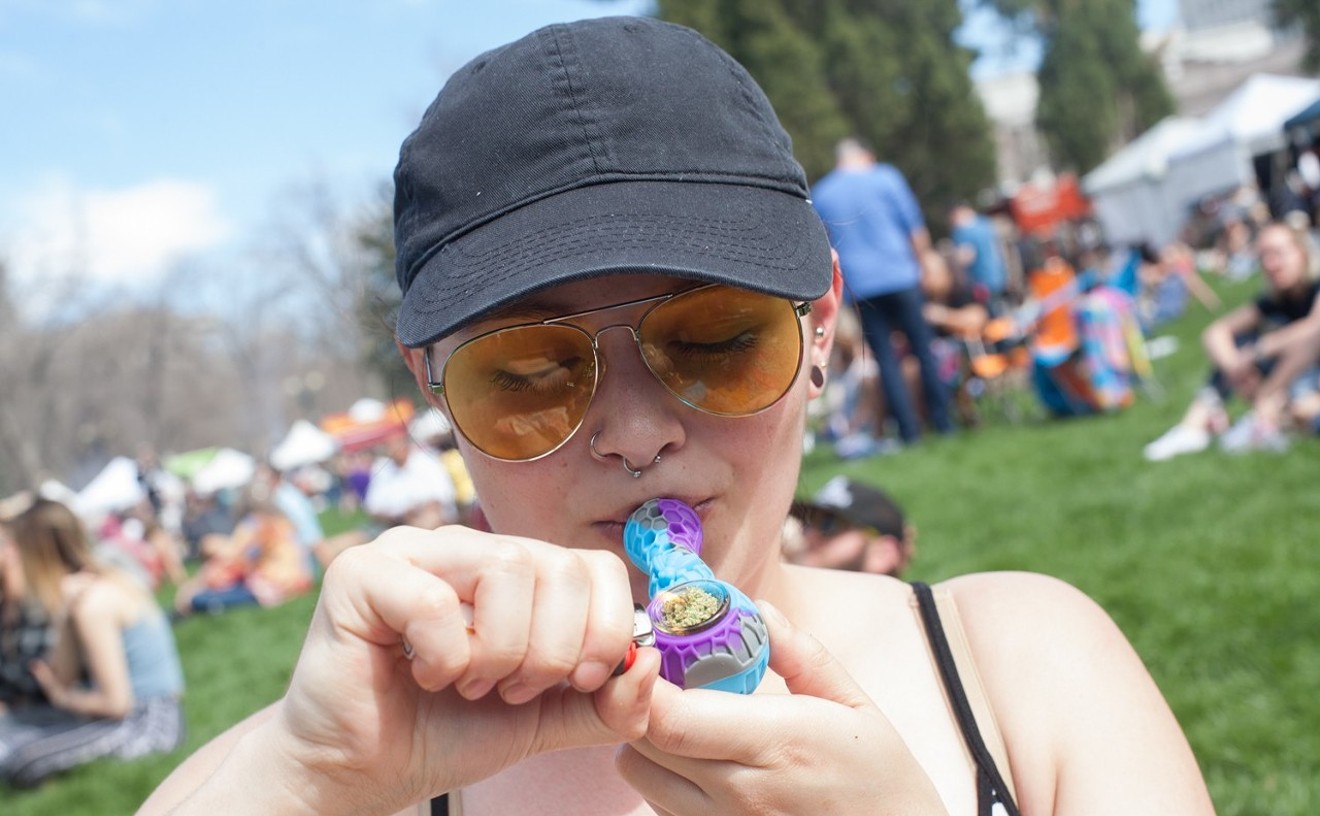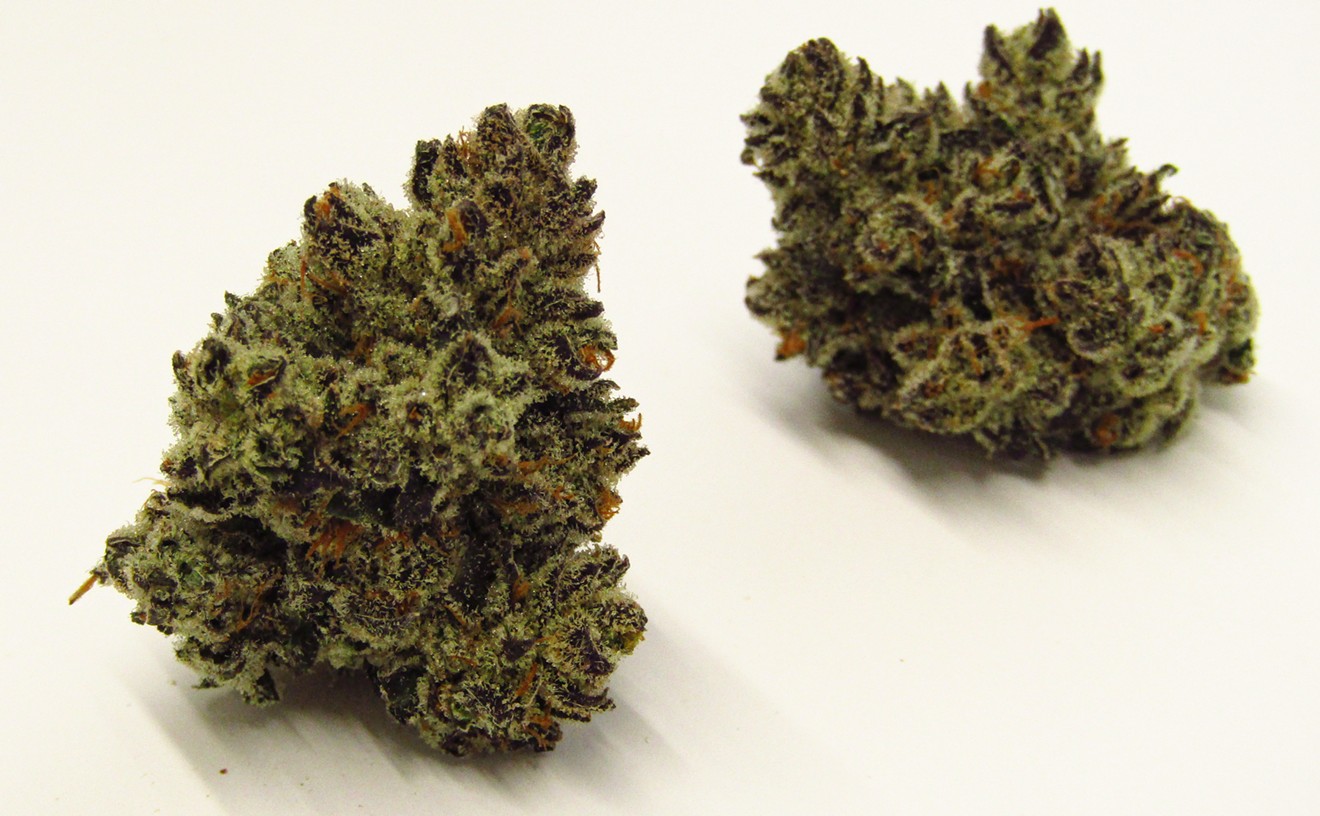A group of marijuana industry heavyweights have formed what they're calling the country's first super PAC devoted to federal pot legalization.
Independent political action committees, also know as super PACs, can raise unlimited sums of money from individuals and corporations. Although super PACs aren't legally permitted to directly donate to political parties, candidates or campaigns, they can run supportive advertisements and find plenty of other ways to help chosen causes with their deep financial resources.
The new marijuana PAC, Legalize America, will "use all available tools — including scorecards, endorsements and targeted independent expenditure campaigns — to advance cannabis reform," according to organization chair Matt Harrell, who also serves as vice president of government relations for Curaleaf, a multi-state marijuana corporation.
Legalize America was formed by members of the United States Cannabis Council (USCC), a trade group made up of some of North America's largest marijuana and marijuana-adjacent companies. Members of the USCC include national dispensary giants Ayr Wellness, Columbia Care, Cresco Labs, Curaleaf, PharmaCann and Schwazze, as well as Scotts Miracle-Gro, dispensary software company Dutchie and Canopy Growth, one of Canada's largest federally legal marijuana corporations.
Of the Cannabis Council's 38 listed members, eight are located in Colorado, including edibles brand 1906, software company Akerna, Cozen O'Connor law firm, dispensary chain Native Roots, Perkins Cole law firm, marijuana ownership group Schwazze, Vicente LLP law firm and edibles manufacturer Wana Brands.
Legalize America says that criminal expungement efforts, ending prohibition and responsible use are all part of its mission. According to USCC communications advisor Josh Glasstetter, the intention is to draw in more companies, donors, celebrity endorsements and "especially consumers."
Authentic, a political consulting and fundraising firm, is currently working with Legalize America, according to the PAC's website. Past Authentic clients include the campaigns of President Joe Biden and Vice President Kamala Harris, Colorado Senator John Hickenlooper, California Governor Gavin Newsom, Arizona Senator Kyrsten Sinema and dozens of other Democratic congressional and gubernatorial candidates.
Despite optimism from marijuana legalization advocates in 2020, federal policy reform has inched slowly since President Joe Biden took office and Democrats have held a slim Senate majority. Marijuana banking protections for state-legal businesses have received little attention in the Senate despite passing the House of Representatives several times, and Senate Majority Leader Charles Schumer's lofty goal of federal decriminalization has taken a long pause.
Last October, as mid-term elections approached, Biden announced that his administration would pardon thousands of low-level federal marijuana convictions and "review" the plant's Schedule I drug status. Federal pardon applications became available in March, but legalization proponents have publicly wondered when the review of marijuana's federal prohibition would happen.
Legalize America secretary Pete Meachum, who works for Canadian cannabis company Cronos Group, says the PAC will mobilize heavily in the next presidential election.
“We believe the 2024 presidential election will be a pivotal moment in the fight to end cannabis prohibition,” Meachum says in a statement. “We are laying the groundwork now to use advertising, grassroots engagement, voter outreach and events to keep cannabis front and center throughout the campaign.”
U.S. voters largely support the notion of legal marijuana, according to a 2022 Pew Research Center survey, which showed that 59 percent of adults supported recreational pot use and just 10 percent said marijuana use should not be legal. But since over half of the country's population now lives in a state with recreational pot and is able to buy cannabis, making full legalization a priority issue could be a challenge.
[
{
"name": "Air - MediumRectangle - Inline Content - Mobile Display Size",
"component": "12017618",
"insertPoint": "2",
"requiredCountToDisplay": "2",
"watchElement": ".fdn-content-body",
"astAdList": [
{
"adType": "rectangle",
"displayTargets": "mobile"
}
]
},{
"name": "Editor Picks",
"component": "17242653",
"insertPoint": "4",
"requiredCountToDisplay": "1",
"watchElement": ".fdn-content-body",
"astAdList": [
{
"adType": "rectangle",
"displayTargets": "desktop|tablet"
},{
"adType": "rectangle",
"displayTargets": "desktop|tablet|mobile"
}
]
},{
"name": "Inline Links",
"component": "18838239",
"insertPoint": "8th",
"startingPoint": 8,
"requiredCountToDisplay": "7",
"maxInsertions": 25
},{
"name": "Air - MediumRectangle - Combo - Inline Content",
"component": "17261320",
"insertPoint": "8th",
"startingPoint": 8,
"requiredCountToDisplay": "7",
"maxInsertions": 25,
"watchElement": ".fdn-content-body",
"astAdList": [
{
"adType": "rectangle",
"displayTargets": "desktop|tablet"
},{
"adType": "rectangle",
"displayTargets": "desktop|tablet|mobile"
}
]
},{
"name": "Inline Links",
"component": "18838239",
"insertPoint": "8th",
"startingPoint": 12,
"requiredCountToDisplay": "11",
"maxInsertions": 25
},{
"name": "Air - Leaderboard Tower - Combo - Inline Content",
"component": "17261321",
"insertPoint": "8th",
"startingPoint": 12,
"requiredCountToDisplay": "11",
"maxInsertions": 25,
"watchElement": ".fdn-content-body",
"astAdList": [
{
"adType": "leaderboardInlineContent",
"displayTargets": "desktop|tablet"
},{
"adType": "tower",
"displayTargets": "mobile"
}
]
}
]












